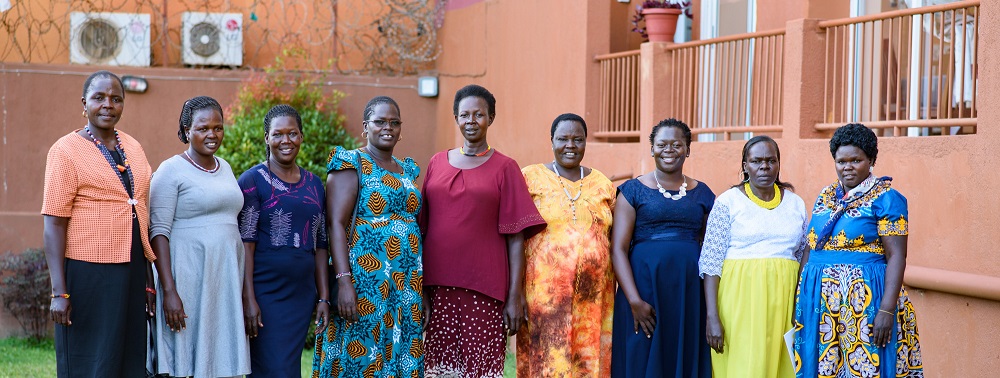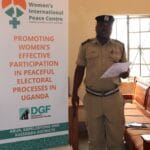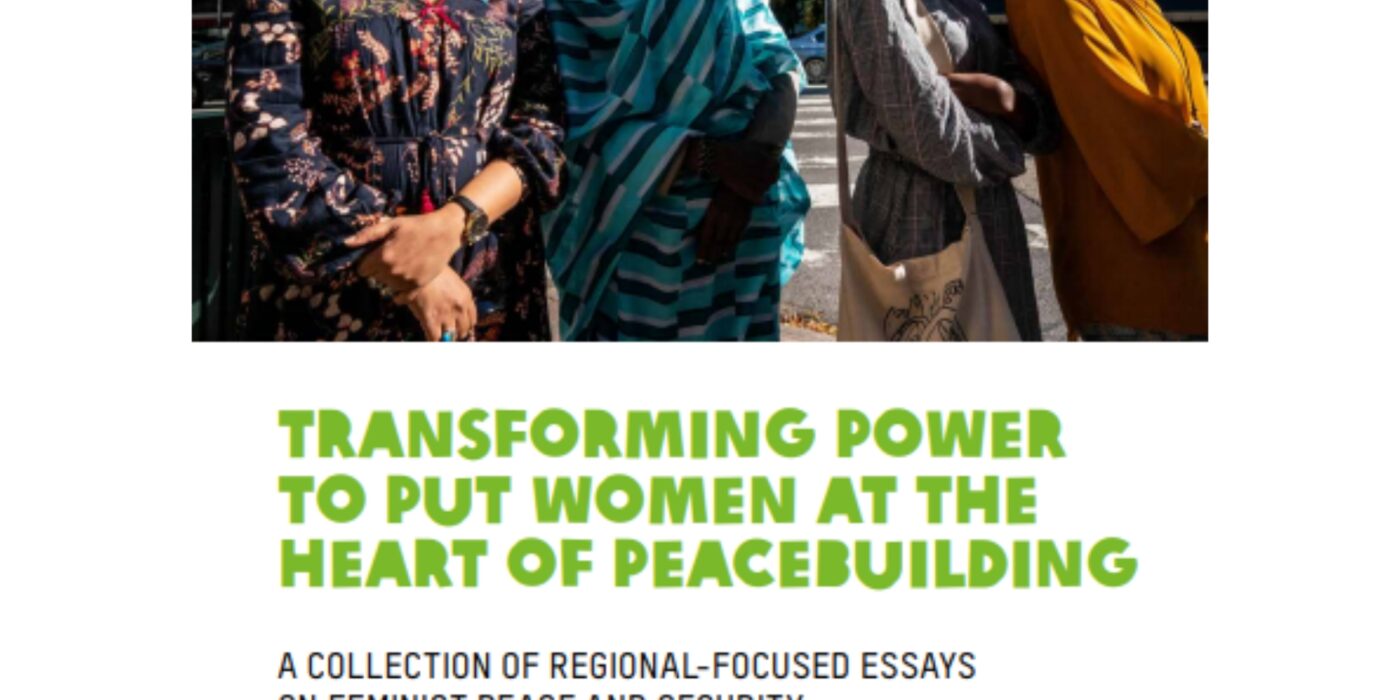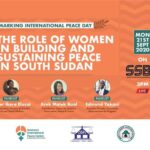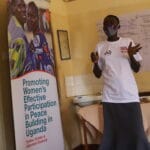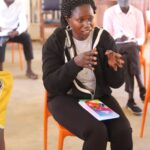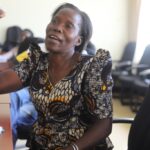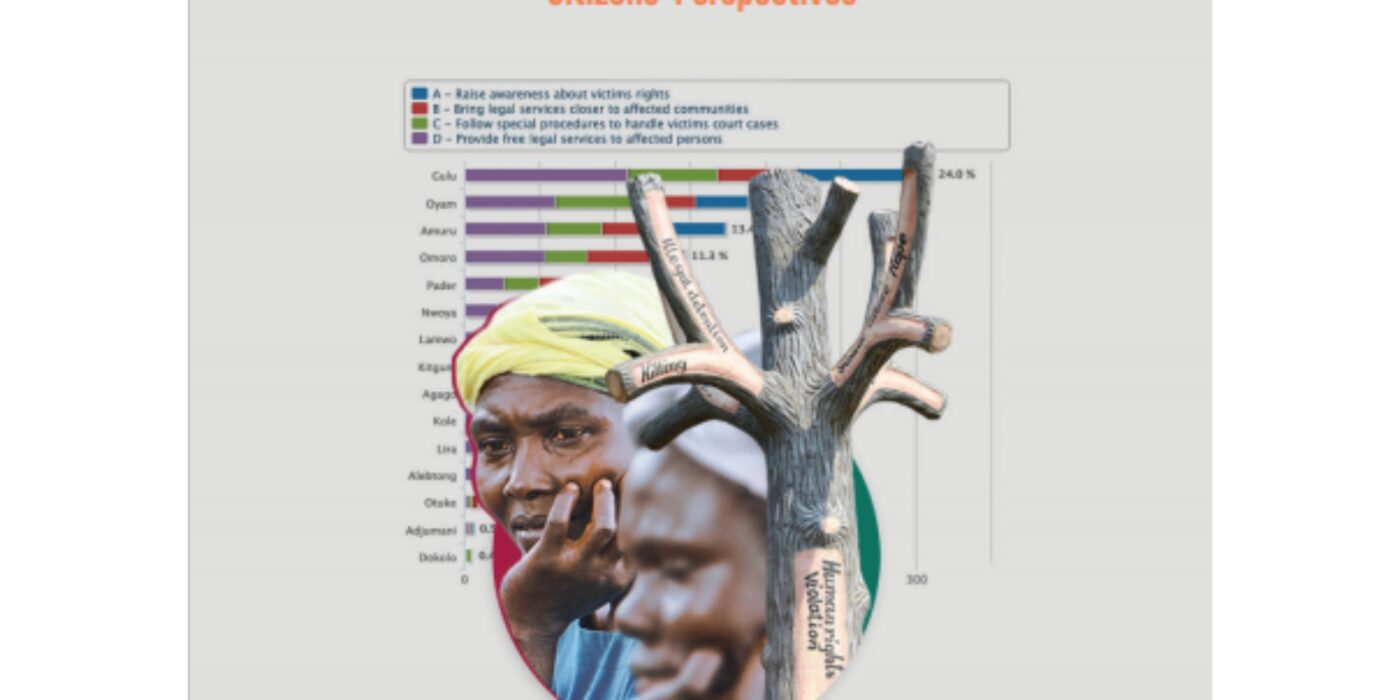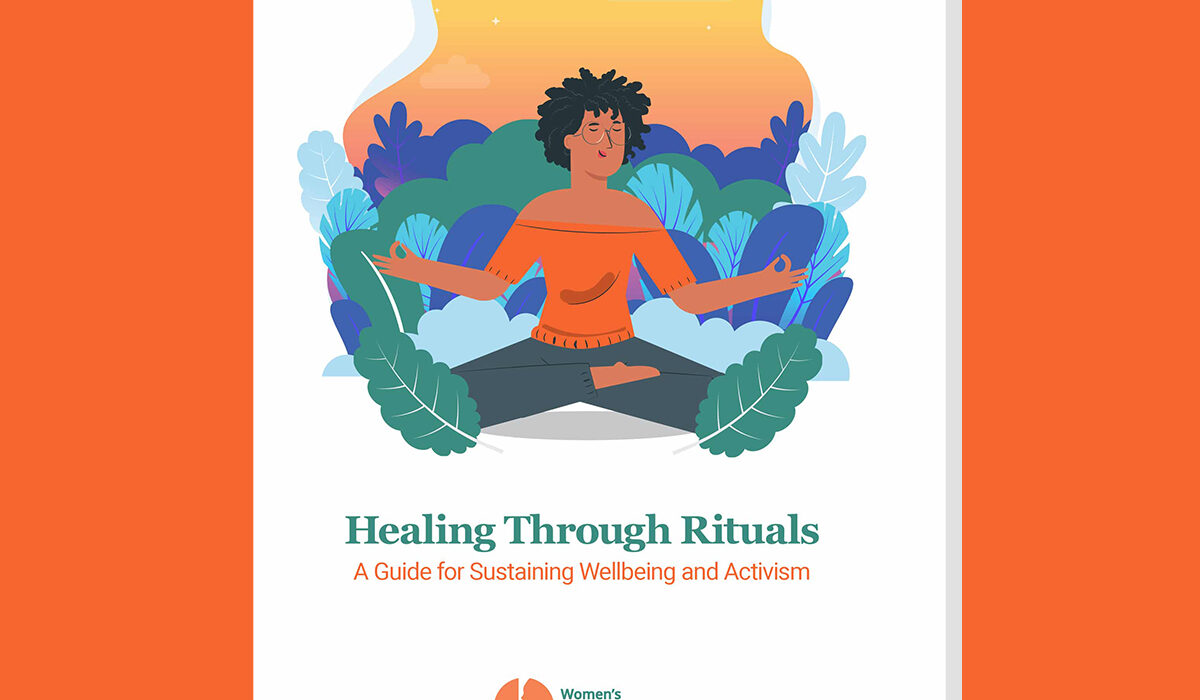Recommendations Presented to the Special Envoy of the Chairperson of the African Union Commission on Women, Peace and Security by Grassroots Women Peace Builders
We, women peace builders from Burundi, the Democratic Republic of Congo, South Sudan, living as refugees in Uganda along with women peace builders from Karamoja and West Nile, Uganda, meeting from 13th to 15th October 2020 in Kampala, Uganda to reflect on grassroots women’s contributions and vision for peace in our communities and countries of origin;
THANK the Government of Uganda for its generosity in hosting us and guaranteeing the rights of refugee women to access land, education, health services, employment, free movement and to live in Uganda with dignity.
COMMEND the Ministry of Gender, Labour and Social Development of Uganda for incorporating the protection and participation of internally displaced and refugee women in conflict prevention, resolution, relief and recovery as a key emerging issue in the third National Action Plan on UN Security Council Resolution 1325 (2020-2024).
RECOGNISE the on-going review of the South Sudan National Action Plan on UN Security Council Resolution (UNSCR) 1325 and Related Resolutions (2015-2020) by the Ministry of Gender, Child and Social Welfare of South Sudan, which aimed to enable the broad participation of women, including displaced women, in peace negotiations and all mediation processes.
APPRECIATE the solidarity and support of the Special Envoy of the Chairperson of the African Union Commission on Women, Peace and Security in championing the priorities and agency of women and girls affected by conflict, including young, displaced and grassroots women, in continental peace and security efforts.
ACKNOWLEDGE the critical role of the Office of the AUC Special Envoy on Women, Peace and Security in developing the Continental Results Framework on Women, Peace and Security and supporting national and regional actors to monitor and report on implementation of the WPS agenda.
SEIZE the opportunity of the 20th anniversary of UNSCR 1325, the 25th anniversary of the Beijing Platform for Action and the start of the African’s Women’s Decade on Financial and Economic Inclusion for African Women to call for accelerated implementation of the WPS agenda from the perspective of young, grassroots and displaced women peace builders.
On the status of implementation of UNSCR 1325 in refugee settlements, within host communities, in cross-border and pastoral conflict settings, we
Highlight the following persisting challenges for women and girls
- The situation of women and girls in these settings is affected by high levels of physical and psychological gender based violence including rape, defilement, family and child neglect, physical deformation, stress, divorce and separation, suicide. This is worsened by limited legal and psychosocial support to SGBV survivors; social stigma; high number of male police who are not equipped to handle court cases with sensitivity and confidentiality; delays in processing cases and perpetrators going unpunished.
- Due to COVID-19, food rations for refugee women and children have been reduced, there is a rise in teenage pregnancies, forced or early marriages, domestic violence and new cases of internal displacement. The COVID-19 situation has also caused fewer women and girls to report SGBV cases and has highlighted the continued need for psychosocial and material support to survivors and persons with chronic special needs.
- Other challenges include limited access to reproductive health services, low levels of income and education among refugee women as well as conflicts between refugees and host communities over land and resources such as firewood, water or grass, worsened by language barrier.
- Refugee women and girls within settlements are excluded from formal peace processes and our voices are not considered in post-conflict reconstruction efforts in countries of origin, for instance in the 2018 South Sudan peace in the process and current governance decisions by the revitalised transitional government of national unity.
- Refugee women and grassroots women peace builders who play key conflict prevention and resolution roles at local levels are under-represented in continental peace and security efforts such as the Silencing of the Guns initiative. Weak exchange of information and feedback between local, national and continental policy levels limits the reach of our voices.
- Women are not meaningfully involved or well represented within peace or security committee structures at sub-county and district level, in districts without organised women mediator groups. Cultural norms and practices still limit women’s access to key decision-making spaces like the Elders’ shrines in Karamoja. Urban refugee women are often not consulted or involved in the design and implementation of policies that concern us.
- The contributions of refugee women and grassroots women peace builders are not recognised or made visible. They are depicted as ‘vulnerable’ even when they are making tangible change in the communities. Women leaders in political spaces within and outside the refugee settlements are making significant contributions to peace and security. However they are also intimidated, targeted by men in the community with false accusations; denied permission by husbands to participate in leadership, face sexual harassment from male superiors in their work; are limited by financial constraints and their levels of education.
We urge the Special Envoy of the Chairperson of the African Union Commission on Women, Peace and Security to consider and amplify our recommendations as follows;
- Call for all Governments and Development Partners to create a protective environment for women and girls affected by conflict, to strengthen judicial and medical responses to SGBV, to provide direct psychosocial and material support to survivors, raise awareness among men and tackle the negative norms and practices sustaining this violence.
- Call on Governments and Development Partners to directly support the conflict prevention and peace building work of refugee and grassroots women’s groups, caucuses and community based organisations; to ‘do no harm’ and equip local women to sustain their work and its positive impact.
- Request the AUC Special Envoy on Women, Peace and Security to promote the creation of sage spaces for conflict-affected women at all levels and to support the inclusion of refugee women and grassroots women peace builders at the highest decision-making tables on peace and security in their host countries and countries of origin.
- Call Upon the IGAD Conflict Early Warning and Response Mechanism to drive the restructuring of district and sub-county level peace committees to have 50% of their members as women.
- Request IGAD, the Government of South Sudan and RJMEC to ensure that South Sudanese refugee women participate and their voices are heard in national peace building processes.
- Request the AUC Special Envoy on Women, Peace and Security to facilitate the participation of refugee women and grassroots women peace builders in continental peace and security efforts, particularly in silencing the guns to which we are victims. We call on other women’s rights organisations, development partners and governments to equip grassroots women to participate in the digital world, with the skills and tools required for our exposure and our voices to be included.
- Call on the African Union Commission and Member States to prioritise the economic empowerment of women and girls affected by conflict, including refugee women, in all the plans of the upcoming African’s Women’s Decade on Financial and Economic Inclusion for African Women. This should address the education.
Dated at Kampala, this 14th day of October 2020

